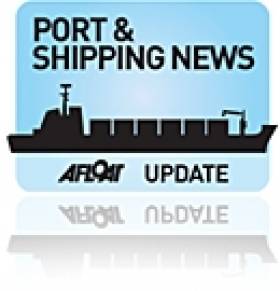Displaying items by tag: Train for Trade Port Training Programme
Ports Host UNCTAD’s Train-for-Trade Port Training Programme
The Port Training Programme is comprised of a "Modern Port Management" course and a final dissertation. During this training of trainer's workshop, the senior managers will be trained as local instructors on Modules 1-4 of the "Modern Port Management" course.
On completion of the workshop which ends today, they will serve as local instructors for their respective ports, collaborating with UNCTAD specialists and transferring their acquired knowledge to the participants of the TFT Port Training Programme.
UNCTAD stands for the United Nations Conference on Trade and Development which was launched in 1998. The new Train-For-Trade programme strengthens national and regional human and institutional resources for trade and investment as a key to growth for UNCTAD member countries, particularly the least developed ones (LDCs).
























































